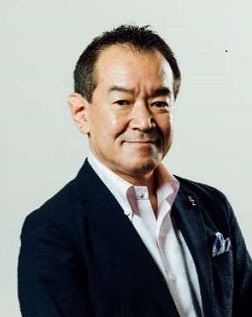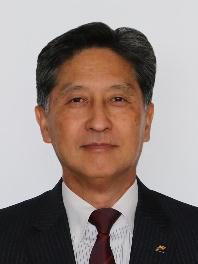
- HOME
- Director greetings
Director greetings
Greetings from the SIC director Mr. Shinichi Urakawa

I have been appointed as the director of the Systems Innovation Center (SIC) taking over the first director, Yutaka Saito.
I really feel that I am tightened. I will be happy if I will do my best to make this center a core player for systemization in various fields and sectors.
It is expected that the industry, government and academia will work together to realize Society 5.0, discover the strengths of Japan, and make full use of the power of the systemization to realize fruitful lives.
Internet technology, one of its core technologies, has evolved significantly since the 1990s and has become a main social infrastructure. This new system infrastructure has won the de facto standard that has swept the world, and has controlled not only the technology but also the foundation of the capitalist economy itself.
There is no dispute that new technologies and new business models accepted by the market will drive new economies. But, it has gradually become an issue that the de facto standard is not only the foundation for ensuring reliable, safe and secure system environment to be achieved.
In addition, the situation of a complicated system environment which is called System of Systems (SoS) is becoming more commonplace, and may hinder stable system operation.
In order to accelerate open systems and open innovation more than ever, in addition to standardization, there is a growing argument that a certain check function is necessary. The Cabinet Secretariat launched the Trusted Web Promotion Council, which is aiming to establish a reliable global standard for web technology.
In addition, although artificial intelligence technology is rapidly developing due to the progress of the deep learning, it has not yet been organically incorporated into information systems of companies. The bottleneck is the extremely limited number of engineers who can accurately understand artificial intelligence and incorporate it into information systems, and there is no dispute that human resource development in industry, government, and academia is urgent.
Regarding data sharing, the government proposed DFFT (Data Free Flow with Trust) in 2019, and set out to promote a cross-country data distribution environment. But, this has not progressed for several reasons, such as the alertness of countries and companies, the standard for data distribution, and the immaturity of the technology required for secure data distribution. Now, GAIA-X in the EU (The European Integrated Data Infrastructure Project) has begun, and the DSA (Data Society Promotion Council) has been established in Japan, then, promotion through public- private-academia collaboration is accelerating.
Therefore, even looking back on the three years since the establishment of SIC center, the environment surrounding the system is moving rapidly.
At this center, we would like to be a “hub” to detect the movements of various institutions such as governments and economic organizations, and to exchange the idea to contribute to the transformation into a better society. Aiming to create a place for “open innovation” that is indispensable for the realization of excellent systems, we realize it while trying to integrate various knowledge possessed by academia and industry from the common viewpoint of “system”. We will support to solve various issues of society and member companies. It includes the raising the level of literacy required for “systemization” and developing human resources who will lead “systemization.” I would like to support the creation of the next-generation “system” which will lead to future development of the society.
Together with our members, we would like to enhance the activities of this center so that we can contribute as much as possible toward the realization of various “systems” that will lead the digital society in the future.
Thank you for your support.
Center Director Shinichi Urakawa, April 2022
Greetings from the former SIC director Mr. Yutaka Saito (2019 – 2022)

I have just been appointed the first director of the System Innovation Center (SIC), and I am truly in feeling of tightness. In the future, we hope that we will work with all our might so that the Center will become a core entity towards systemization in various fields and sectors.
Now, aiming at a sustainable society, changing society from the viewpoint of people-centered “Koto” is a common goal of international society represented by SDGs. We observe the growing expectation for advanced digital technology in every field of society that is able to transform the society and bring unprecedented possibilities of changes in all areas of society.
In addition, in the business field, disruptive innovation that offers unprecedented services using cutting-edge digital technology and various data has started, and emerging IT companies such as the United States and China now. As you already know, they create new business ecosystems and destroy global and traditional business ecosystems using data as a resource.
The digital transformation and disruptive innovation currently in progress in society and industry rely not only the core technology and know-how, but the “system” that realizes such “Koto” is the core technology and idea. It is no exaggeration to say that system itself is a technology source of competitiveness.
And, taking advantage of the characteristics of digitization and providing optimal customized services to each user in a new form, which we can call the realization of such new “Koto”, goes beyond conventional perspectives. From the perspective of the whole, across industries, each field, related parties with various “knowledge”, cross-sectional collaboration with related departments is required. Making full use of its various technologies, know-how, etc. an enabling approach, the so-called “open innovation” and “systemization”, are needed.
In order to contribute to the transformation to a better society and the transformation to a competitive company, the Center aims to create a common open innovation place, which is indispensable to the realization of such excellent systems. We intend to create an environment in which we can work towards the realization of systems innovations, while integrating various knowledge possessed by the academic community and industry from a common viewpoint of systems. In addition to solving the various issues that society and participating companies face, including the promoting the literacy necessary for “systemization” and human resource development that lead to excellent systemization, We would like to provide support for the creation of the next-generation “system” that leads to future development
Together with the members, I would like to enhance the activities of this center to contribute to the realization of various “systems” that will lead the digital society for the future. Thank you for your guidance and support.
Former Director Yutaka Saito January 2019

